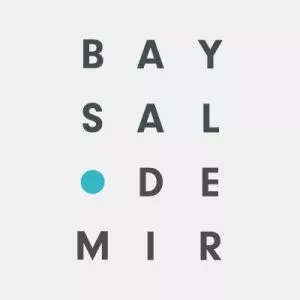Summary
As of 19th September 2023, with an amendment to the Regulation on the Application Principles of Tariffs in Compulsory Financial Liability Insurance for Motor Vehicles, damages to third parties caused by vehicles that pose a risk higher than reasonable level may be shared among member insurance companies of the Risky Insurances Pool under certain conditions even if the vehicle in question has no compulsory financial liability insurance at the time of loss.
Introduction
Liability insurance for motor vehicles ("CTI") is a mandatory insurance required by the Highway Traffic Law (No. 2918). This requirement concerns both vehicle operators and insurance companies. The Insurance Law (No. 5684) regulates that insurance companies cannot refuse to provide insurance coverage to individuals who apply for such mandatory insurance.
Nevertheless, due to the increasing imbalance between insurance premiums which are subject to a specific tariff and the magnitude of risk (e.g., repair costs), insurance companies may, in practice, avoid responding to insurance applications and thus evade compulsory insurance. This situation has a higher significance in terms of traffic insurance, which constitutes approximately 30% of the whole insurance sector.
Implications of the Amendment
Since the sanctions to address this issue did not yield the desired results, the solution has been found in distributing the risk among insurance companies. This aims to prompt insurance companies, who are not required to bear the risk alone, to provide a positive response to insurance requests without delay.
Before the amendment, the relevant regulation had introduced various adjustments for the operators of high-risk vehicles:
- The Insurance and Private Pension Regulation and Supervision Authority ("SEDDK") had been empowered to establish special rules for premium and distributing damages among insurance companies;
- As an extension of this authority, they had established the Risky Insureds Pool ("Pool"), effective from 2017.
- They had also implemented various regulations regarding insurance premiums and adjustments to be applied based on the determined risk level.
With this latest amendment, SEDDK has been authorised to decide on the inclusion of the vehicle operators who cannot receive an insurance premium offer within the scope of this Regulation within the specified period of time into the scope of the Pool regardless of their vehicle group and decide on the maximum premium amounts to be applied to them.
This regulation also heralds another innovation that has been on the agenda for a long time. It is expected that the Traffic Bidding Platform ("Platform") will be established shortly, which will serve to concretise the criteria of this new authority granted to SEDDK. Accordingly;
- The agency or broker who receives the application of the vehicle operator will be expected to receive offers from the relevant insurance company and write a policy in a time as short as 10 minutes,
- If this offer cannot be obtained, the agent will have the opportunity to reach other insurance companies through the Platform for an offer.
The SEDDK, within the scope of its authority granted by the amendment to the regulation, will only step in if it is not possible to obtain bids within a short period of time through these methods and will appoint the insurance company in order.1 2 Policies issued in this way will automatically be covered by the Pool.
According to Annex 4 of the Regulation regulating the working principles of the Pool, the sole function of the insurer appointed by the SEDDK is to manage the claim process of the policy it has issued. And the insurance company will collect a 5% commission from the insured in addition to the premium in relation to these operational costs.
The compensation to be paid as a result of the claim process will be allocated among all insurance companies in accordance with the aforementioned working principles.
Evaluation
After the operator applies to the insurer for compulsory traffic insurance, the insurer will calculate the risk and premium within a reasonable period of time and make a premium offer to the applicant. At this point, the vehicle of the operator who has applied to the insurer but has not yet received a premium offer may cause damage to a third party. During this period, the operator is not yet covered by the insurance. Because insurance protection starts with the issuance of the policy and payment of the insurance premium. Therefore, the injured third party will not be able to find an insurer to compensate for the damage. With the new amendment, the damages incurred due to the operation of the vehicle in this interim period will be covered within the scope of the Pool.
Footnotes
1. https://sigortagazetesi.com/yonetmelik-cikti-trafik-teklif-platformu-icin-ilk-adim-atildi/
2. https://www.capital.com.tr/haberler/tum-haberler/zorunlu-trafik-sigortasinda-yeni-donem-trafik-teklif-platformu
The content of this article is intended to provide a general guide to the subject matter. Specialist advice should be sought about your specific circumstances.


